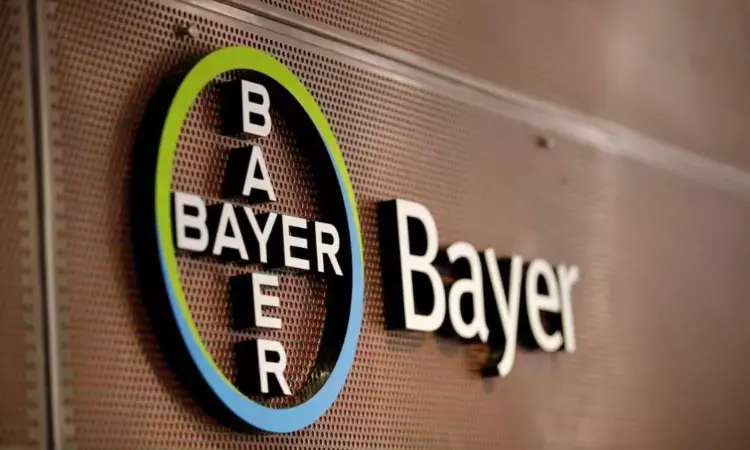- Home
- Medical news & Guidelines
- Anesthesiology
- Cardiology and CTVS
- Critical Care
- Dentistry
- Dermatology
- Diabetes and Endocrinology
- ENT
- Gastroenterology
- Medicine
- Nephrology
- Neurology
- Obstretics-Gynaecology
- Oncology
- Ophthalmology
- Orthopaedics
- Pediatrics-Neonatology
- Psychiatry
- Pulmonology
- Radiology
- Surgery
- Urology
- Laboratory Medicine
- Diet
- Nursing
- Paramedical
- Physiotherapy
- Health news
- Fact Check
- Bone Health Fact Check
- Brain Health Fact Check
- Cancer Related Fact Check
- Child Care Fact Check
- Dental and oral health fact check
- Diabetes and metabolic health fact check
- Diet and Nutrition Fact Check
- Eye and ENT Care Fact Check
- Fitness fact check
- Gut health fact check
- Heart health fact check
- Kidney health fact check
- Medical education fact check
- Men's health fact check
- Respiratory fact check
- Skin and hair care fact check
- Vaccine and Immunization fact check
- Women's health fact check
- AYUSH
- State News
- Andaman and Nicobar Islands
- Andhra Pradesh
- Arunachal Pradesh
- Assam
- Bihar
- Chandigarh
- Chattisgarh
- Dadra and Nagar Haveli
- Daman and Diu
- Delhi
- Goa
- Gujarat
- Haryana
- Himachal Pradesh
- Jammu & Kashmir
- Jharkhand
- Karnataka
- Kerala
- Ladakh
- Lakshadweep
- Madhya Pradesh
- Maharashtra
- Manipur
- Meghalaya
- Mizoram
- Nagaland
- Odisha
- Puducherry
- Punjab
- Rajasthan
- Sikkim
- Tamil Nadu
- Telangana
- Tripura
- Uttar Pradesh
- Uttrakhand
- West Bengal
- Medical Education
- Industry
Bayer announces positive results from phase I trial of Bemdaneprocel to treat Parkinson's disease

Bemdaneprocel, an investigational therapy comprised of dopamine producing neurons derived from pluripotent stem cells, is surgically implanted into the brain of a person with Parkinson's disease.
Berlin:Bayer AG and BlueRock Therapeutics LP, a clinical stage cell therapy company and wholly owned independently operated subsidiary of Bayer AG, have announced positive top-line results from a Phase I clinical trial of investigational drug, bemdaneprocel (BRT-DA01), a potential first-in-class cell therapy for Parkinson's disease.
The trial showed that bemdaneprocel was well-tolerated in all 12 patients in the study to date, with no major safety events. In addition, an assessment of the study’s secondary endpoints demonstrated feasibility of transplantation and evidence of cell survival and engraftment in the brain through one year. Based on these results, planning is underway for a Phase II study that is expected to begin enrolling patients in H1 (first half) 2024.
“We are on a mission to harness the power of cell therapy with the aim to help people with Parkinson’s disease regain control of their lives by restoring the functions that they have lost to this disease,” said Ahmed Enayetallah, Senior Vice President and Head of Development, BlueRock Therapeutics. “The safety profile of bemdaneprocel was encouraging along with early evidence of cell survival and engraftment, marking a very important step in the development of a potential new therapy for patients with this disease. These topline data provide a strong rationale for initiating the next phase study, and we look forward to advancing this clinical program.”
Parkinson’s disease is a progressive neurodegenerative disorder caused by nerve cell damage in the brain, leading to decreased dopamine levels. At diagnosis, it is estimated that patients have already lost 50-80% of their dopaminergic neurons. The loss of these neurons leads to a progressive loss of motor function and symptoms such as tremors, muscle rigidity, and slowness of movement (bradykinesia). According to the Parkinson’s Foundation, more than 10 million people worldwide suffer from Parkinson’s disease, with approximately one million living in the United States. There is no cure, and the efficacy of current treatments decreases over time.
Bemdaneprocel (BRT-DA01), an investigational therapy comprised of dopamine producing neurons derived from pluripotent stem cells, is surgically implanted into the brain of a person with Parkinson’s disease. When transplanted, these cells have the potential to reform neural networks that have been destroyed by Parkinson’s disease in the hope of restoring motor and non-motor function to patients.
“At Bayer, we are committed to advancing cell and gene therapy innovations for patients with Parkinson’s disease, a neurodegenerative disorder with debilitating effects on people’s lives for which there is currently no cure and only limited treatment options,” said Christian Rommel, Member of the Executive Committee of Bayer’s Pharmaceuticals Division and Head of Research and Development. “The positive outcome of our first cell therapy clinical trial for Parkinson’s is encouraging not only for the bemdaneprocel development program but also our entire pluripotent stem cell-based platform and warrants further investigation in larger groups of patients.”
Detailed Phase I trial data from primary and secondary endpoints will be presented at the 2023 International Congress of Parkinson’s Disease and Movement Disorders in Copenhagen from August 27 – 31.
Ruchika Sharma joined Medical Dialogue as an Correspondent for the Business Section in 2019. She covers all the updates in the Pharmaceutical field, Policy, Insurance, Business Healthcare, Medical News, Health News, Pharma News, Healthcare and Investment. She has completed her B.Com from Delhi University and then pursued postgraduation in M.Com. She can be contacted at editorial@medicaldialogues.in Contact no. 011-43720751


